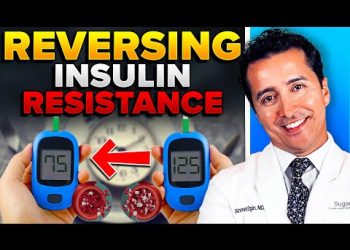Introduction to Fat-Burning Foods
Incorporating specific foods into your diet can significantly impact your body’s ability to burn fat and promote healing. Understanding which foods contribute to weight loss and overall well-being is essential for anyone looking to improve their health.
The Role of Metabolism
The metabolic rate is crucial in determining how quickly your body can shed excess fat. Certain foods can boost metabolism, effectively aiding the fat-burning process. By eating these foods, you can help your body become a more efficient fat-burning machine.
Protein-Packed Foods
Protein-rich foods such as lean meats, fish, and eggs are not only essential for building muscles but also for increasing satiety and metabolism. These foods enhance your body’s ability to burn calories as they require more energy to digest compared to fats or carbohydrates.
Fiber-Rich Ingredients
Incorporating plenty of fiber in your diet can significantly aid in managing weight. Foods like fruits, vegetables, and whole grains improve digestive health and help regulate your body’s sugar levels, preventing hunger pangs and promoting a sustained energy release.
Healthy Fats
Contrary to popular belief, not all fats are detrimental to health. Sources of healthy fats like avocados, nuts, seeds, and olive oil are vital for overall health and can even promote fat loss by boosting metabolism and reducing hunger.
Thermogenic Foods
Certain foods have a thermogenic effect, meaning they increase the body’s heat production and thereby increase calorie burn. Spicy foods containing ingredients like hot peppers can enhance this effect, making them excellent additions to a fat-burning diet.
Antioxidant-Rich Options
Consuming antioxidant-rich foods supports your body’s healing processes and helps combat inflammation. Berries, green tea, and dark chocolate are excellent choices that not only enhance weight loss but also provide nutritional value.
The Importance of Hydration
Water is crucial for various body processes, including metabolism. Staying adequately hydrated aids in the efficient breakdown of fats and supports the body’s detoxification processes, essential for weight loss and overall health.
Meal Timing and Frequency
When it comes to fat loss, not only what you eat but also when you eat can make a difference. Eating smaller, more frequent meals can help keep your metabolism active throughout the day, preventing energy slumps and supporting continuous fat burning.
Conclusion: A Balanced Approach
An effective fat-burning and healing diet involves a mix of proteins, healthy fats, fibers, and thermogenic foods, consumed in a balanced manner. Developing a comprehensive understanding of these elements will empower you to make informed dietary choices that promote health and vitality.











